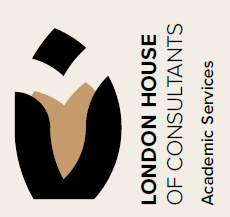Diplomacy is central to foreign policy. It is the way in which the representatives of states interact with one another.
St Mary’s University is delighted to be collaborating with the London House of Consultants (LHC) to deliver a short course in the Theory, Practice and History of Diplomacy. Delivered at level seven the course has been tailored to both English and Arabic speaking audiences and will be delivered in English with simultaneous translation into Arabic via an interpreter, ensuring accessibility for all participants.
The course will be delivered by Dr Christopher Wylde, Senior Lecturer in Politics and International Relations at St Mary's University, and provides an outline of how diplomacy emerged. It shows how diplomacy can be traced back to the very earliest phases of human development, long before the emergence of modern states as we know them. It examines the development of diplomatic practice through the Medieval world, before looking at how diplomacy evolved in the modern era.
Through the course you will explore the ways in which diplomacy is carried out in contemporary international affairs, and how diplomacy fits into the big picture of foreign policy. You will analyse the roles of specific diplomatic institutions, such as foreign ministries and embassies. Finally, the rules that shape diplomatic practice are analysed, as well as the different types of diplomacy, including the increasingly important role of public diplomacy.
Date and Time
The course will run over 10 Monday evening sessions between 5pm - 7pm (UK time) from:
- Monday 17th February - Monday 5th May 2025.
Please note there are no classes on Monday 14th April and Monday 21st April 2025. Monday 5th May will be a double, extended session and will run from 5pm - 9pm (UK time).
The course will be translated from English language to Arabic language via an interpreter who will also join the online sessions.
Location
The course will be delivered online via 'live' Teams sessions.
Price
The full course cost is £1,599.
Content
Throughout the course you will study a variety of topics including:
- what is diplomacy?
- the evolution of diplomacy from the 'ancient' to 'the old' and 'the old' to 'the new'
- contemporary diplomatic methods
- diplomatic organisation, foreign affairs, the embassy, consulates and international law
- the art and structure of diplomatic – practices, negotiation and language
- the rise of the non-state actors and celebrities in diplomacy
- international economic environmental and security diplomacy
- public and cultural diplomacy
- the future of diplomacy, guerrilla diplomacy and cyberpolitik.
On completion of the course you will be able to:
- Demonstrate detailed knowledge of key moments in the historical development of diplomatic practice, including a sophisticated recognition of the relationship between diplomatic practice and diverse social, political, and cultural contexts.
- Critically assess the significance of historical and theoretical frameworks for the study of diplomacy.
- Apply historical evidence and theoretical approaches to contemporary global issues.
- Complete a piece of qualitative research involving high-level professional skills such as the formulation of questions, analysis and evaluation of evidence from a range of scholarly and historical sources, and the marshalling of an argument.
- Communicate findings to a variety of audiences in both written and spoken media.
Assessment
The course is assessed via two written assessments. The first assignment on 'Diplomatic Dispatch' should be 1,500 words and the second essay assignment is 2,500 words. You can choose from five essay titles which one you will focus on.
The assessments can be submitted in English or Arabic language.
Requirements
All participants must be over 18 years of age to enrol.
Award
Upon successful assessment of the module, you will be awarded 20 masters level academic credits and will receive a certificate of achievement.
Book your place now
For more information about this course please contact the Short Courses Team: